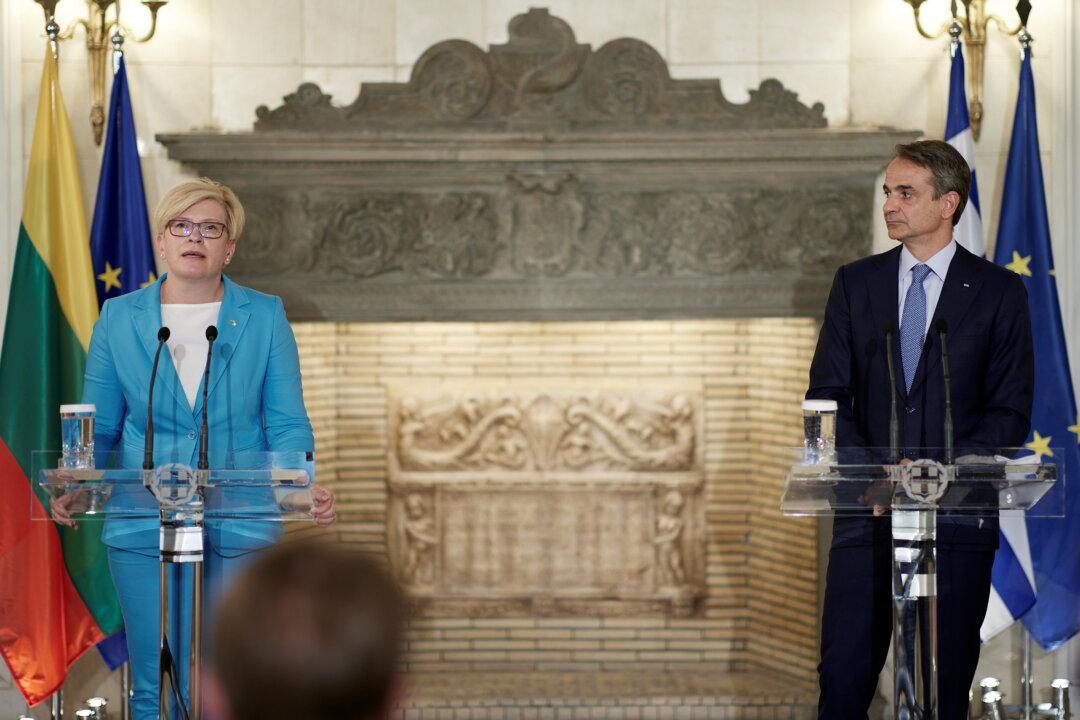ATHENS, Greece—The government of Greece has offered to share its experiences on illegal immigration with Lithuania, which is facing a sharp rise in the number of people crossing its border illegally, Greek Prime Minister Kyriakos Mitsotakis said on July 15, after what he called an “orchestrated effort” by Belarus to pressure its neighbor.
The comments, following a meeting with Lithuanian Prime Minister Ingrida Simonyte in Athens, come as Lithuanian and EU officials have accused Minsk of using illegal immigrants to pressure the European Union because of the bloc’s sanctions.





